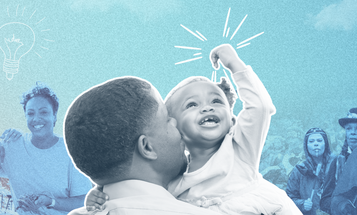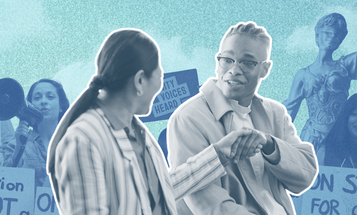
In order to determine the best states in which to pursue a law-enforcement career, WalletHub compared the 50 states and the District of Columbia across 25 key indicators of police-friendliness. [...]
Chiraag Bains, Director of Legal Strategies, Demos:
What are the biggest issues facing police officers today?
"The biggest issue facing police today is a crisis of public confidence. We have seen examples of racial discrimination, viral videos documenting misconduct, and widespread protest against incidents of police violence and the lack of accountability. Officers themselves report that it's a difficult time to be in law enforcement. And there are consequences for officers' ability to protect the rest of us. When people do not trust the police, they are less likely to report crime and cooperate as witnesses. This undermines public safety — often in the communities that need police service most.
The challenge is for the police profession to meet this crisis of confidence head on. It won't do to ignore the criticism, to mischaracterize it as a 'war on cops,' or to insist that police misconduct is just a matter of a few bad apples.
Police are public servants. They have the power to use force, even deadly force, in our names. In a democratic system that values liberty and free speech, that means people have the right and duty to scrutinize them.
Rhetoric about a so-called 'war on cops' is dangerous. It pits communities against law enforcement. It creates an us vs. them mentality that prevents people from seeing each other as fundamentally connected. It undermines public safety. And it corrodes our democracy by saying to millions of people who have found their voices, your government doesn't hear you.
The 'few bad apples' narrative is downright wrong — and also deeply unfair to cops. It attempts to blame individual officers for all that is problematic in policing today. In fact, the most pressing problems in policing stem from policy decision made far above the pay grade of a beat officer, often by elected officials who have never patrolled the streets.
Take stop-and-frisk in New York City. From 2002 to 2011, the number of pedestrian stops made by NYPD skyrocketed from 97,000 to 686,000. A federal judge found this program unconstitutional because people were being stopped unlawfully and in a racially discriminatory manner. Where should the blame lie for those violations of the Constitution? Line officers didn't spontaneously decide to increase the number of stops seven-fold themselves. That was a policy decision made by city leadership and the top brass of the NYPD.
Ferguson, Missouri, provides another example. The community in Ferguson came to resent the police because they operated as a ticketing and collections agency, and they operated that way because the city used them to generate revenue for its annual budget. The Finance Director was making policy around officer deployment and shift schedules in order to maximize revenue, with the police chief following his lead. Line officers were pressured to issue as many tickets as they could and to arrest people whose poverty caused them to miss payments on their outstanding court fines and fees. In Baltimore, officers complained that they were pressured to make their numbers -- keep their stops and arrests high -- by an administration eager to show it was doing something about crime. In both cases, the result was a pattern of constitutional violations. That's not a matter of bad apples. It's a systemic problem that must be addressed at the level of policy, training, and accountability to the community.
So how to build trust? First, police must respect the constitutional rights of all people. Violation of people's core rights -- their freedom to walk down the street, their right to bodily integrity, their right to be free from excessive force, their right to be treated equally regardless of who they are or what they look like -- is at the core of distrust.
Second, there can be no trust without accountability. Officers must be held accountable -- whether criminally, in the civil system, or by internal discipline, depending on the situation -- when they abuse their authority. When the members of the public see officers using excessive force or engaging in racial profiling without being held to account, they come to see the justice system as rigged. That weakens our institutions and tears at our social fabric.
Third, policing should reflect the needs and priorities of the community. Residents should be intimately involved in the design and operation of a police department. This means they should have meaningful input into policy, training, recruitment, and accountability systems. Police data and activity must be as transparent as possible."
What is the long term outlook for the law enforcement field?
"I'm optimistic that the field can build trust with disaffected communities by being proactive. Already, we have a cadre of police chiefs and commanders who understand that systemic misconduct is real and must be addressed through long-term systems change. And communities are more organized than ever, vigilant about their rights and replete with ideas for reform.
At the same time, the rest of our institutions need to adapt. Right now, we ask police to do the job of social support systems that we have underfunded. We ask officers to respond to school discipline problems, family disputes, mental health crises, homelessness, and situations that stem from chronic poverty. They cannot do all of these jobs. No one can. We need to invest in education, dispute resolution, social services, and affordable and emergency housing. We as citizens must take responsibility for each other. We can't simply call the police and then blame them when things go wrong.
We've also got to talk honestly about the issue of guns in America. Many tragic police shootings occur because an officer fears for his life. Cases in which officers mistook a cell phone or wallet for a gun abound. Whether reasonable or unreasonable, that fear often results from the reality that guns are everywhere. Policing in a society awash with guns is incredibly challenging."
Do you think police departments should invest more in technology and equipment or focus more on developing soft skills for use in community policing?
"In many police departments, there has been an overinvestment in military-grade equipment. At the same time, there has been an underinvestment in the types of training and technology that could help ensure constitutional policing and avoid bad outcomes. For example, police departments should invest in incident tracking and data collection systems that can show how officers are deployed and whether they are enforcing the law in a neutral and impartial manner. They should invest much more training time in communications skills and de-escalation tactics."



